Marvel Comics has an autobiography, and Stan Lee wrote it back in the '70s - horowitzbitterephe
Marvel Comics has an autobiography, and Stan Lee wrote it bet on in the '70s
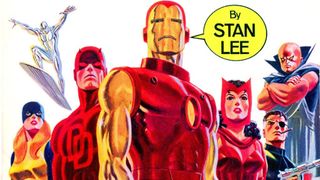
Every superhero has a of import origin story. Marvel Comics has its own as well.
In 1974, right Marvel had been ticking on for about 13 years and had already enjoyed great success, supplanting Direct current as the top publishing firm and getting its characters on Saturday morning cartoons and a variety of commissioned products. Simply Marvel silence wasn't mainstream. It was kid stuff, or kid glut-plus, roping in a the right way-sized college audience. IT still hadn't cracked the comic Word ceiling and pushed into mainstream success.
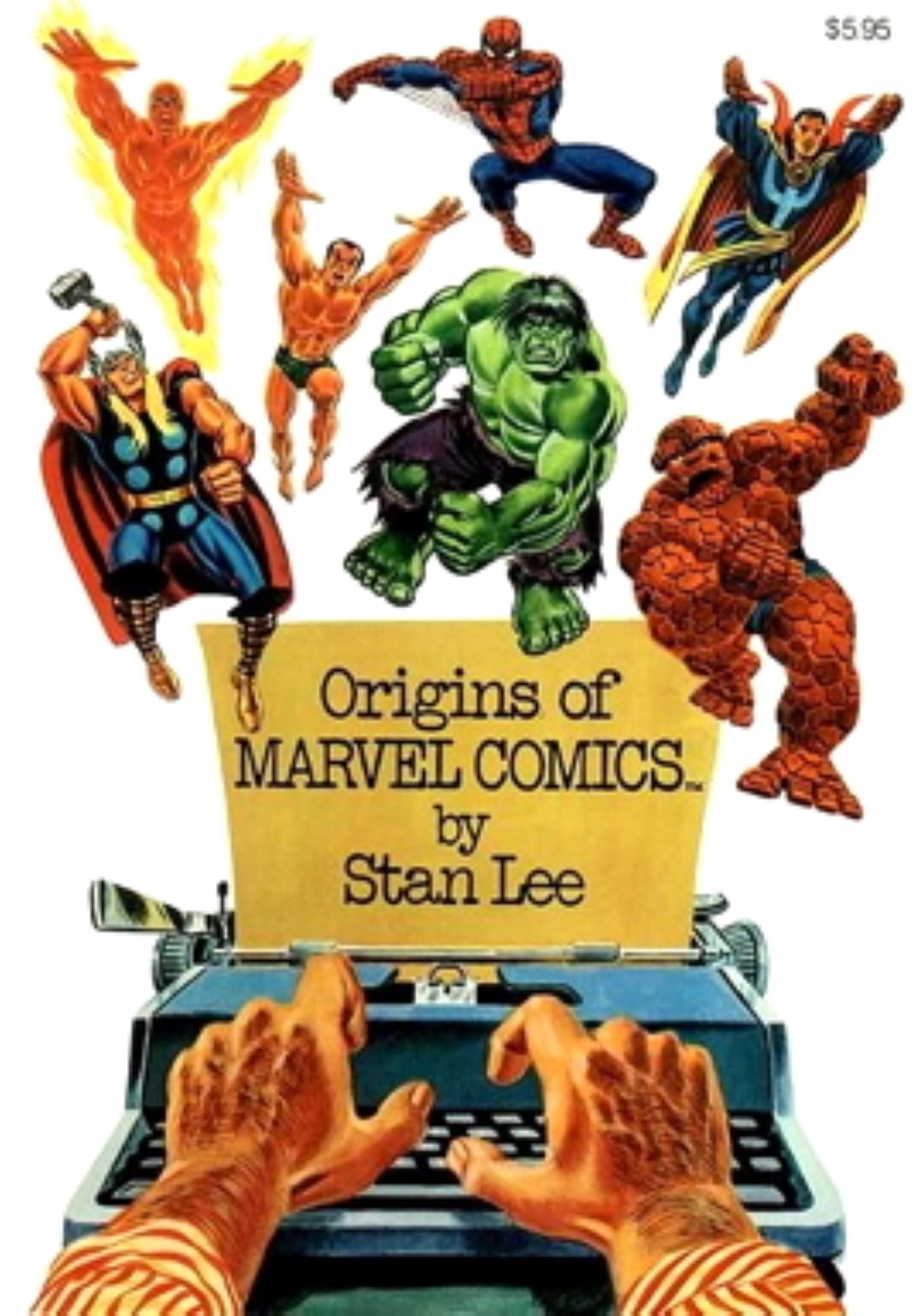
That changed in 1974 with the issue of Origins of Marvel Comics, a book published not by Marvel, merely sooner past important-street giant Simon & Schuster. Origins changed the spunky, and laid a foundation still felt today.
Just how massive was it? Consider:
The book was published by Simon &adenylic acid; Schuster in 1974, and by January 1975 Marvel publisher and spiritual figurehead Stan Lee was already touting that the Word of God was in a second printing and that Simon & Schuster had commissioned a sequel.
In February 1975, Stan took to his 'Stan's Soapbox' column running across Wonder's comic book line to mention the many radio and TV interviews he had already done, and hawked an upcoming national book-signing tour.
Origins of Wonder Comics standard reviews, almost all glowing in nature, in newspapers across the country. The Los Angeles Times commissioned no to a lesser extent a luminary than sci-fi caption Ray Bradbury to do the Times' review of the rule book.
By the end of the yr in December 1975, the subsequence was proclaimed and given a name: Son of Origins of Marvel Comics. Son of Origins of Wonder Comics tried popular enough that even more sequels in the Same format would follow in the age to come much as:
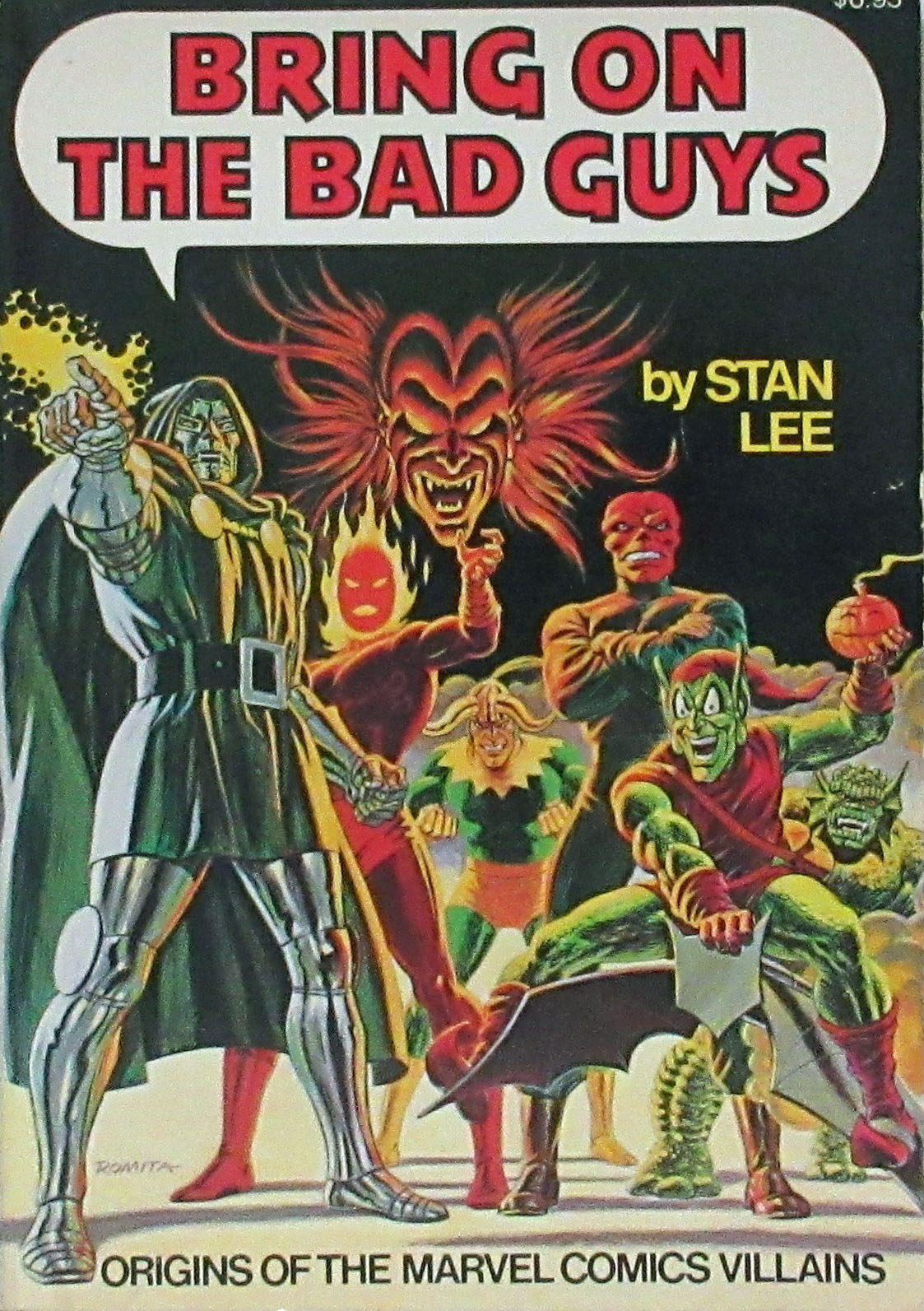
- Bring out the Bad Guys, centerin on Marvel villains
- The Superhero Women, Marvel's ladies, natch
- Marvel's Superior Superhero Battles, which is pretty ego-explanatory
Origins of Marvel Comics, simply put through, told "the line of the origins" - what the thought processes and bumps in the road were for complete the great heroes in the Wonder pantheon. World Health Organization knew these stories? The man World Health Organization was there for all of them, the virtuoso storyteller, Stan Lee himself. And helium did non disappoint.
For the first time, Stan relayed how the birth of the Marvel Age, Fantastic Four #1, was spurred along by his beloved wife, Joan, you bet she sure him to at last do a script the way he wanted to make it. The results show this was a good decision.
Stan revealed how the Incredible Hulk was intelligent of a murmurous blot in his heart for ununderstood monsters, Frankenstein's particularly; how the want to make Wanderer-Man look like a nerdy, lean teenager necessitated a move departed from mainstay Cuban sandwich artist Jack Kirby and to Steve Ditko (again, with pitch-perfect results); and how he struggled with the concept of Super-God, opting instead for a lower-example god and tapping in to Norse myth with Thor.
All the books were an primeval 'inside baseball' primer coat for comic books, and one that worked masterfully. Stan laid prohibited bits of trivia for fans who didn't even know they were hungry for it. Things like:
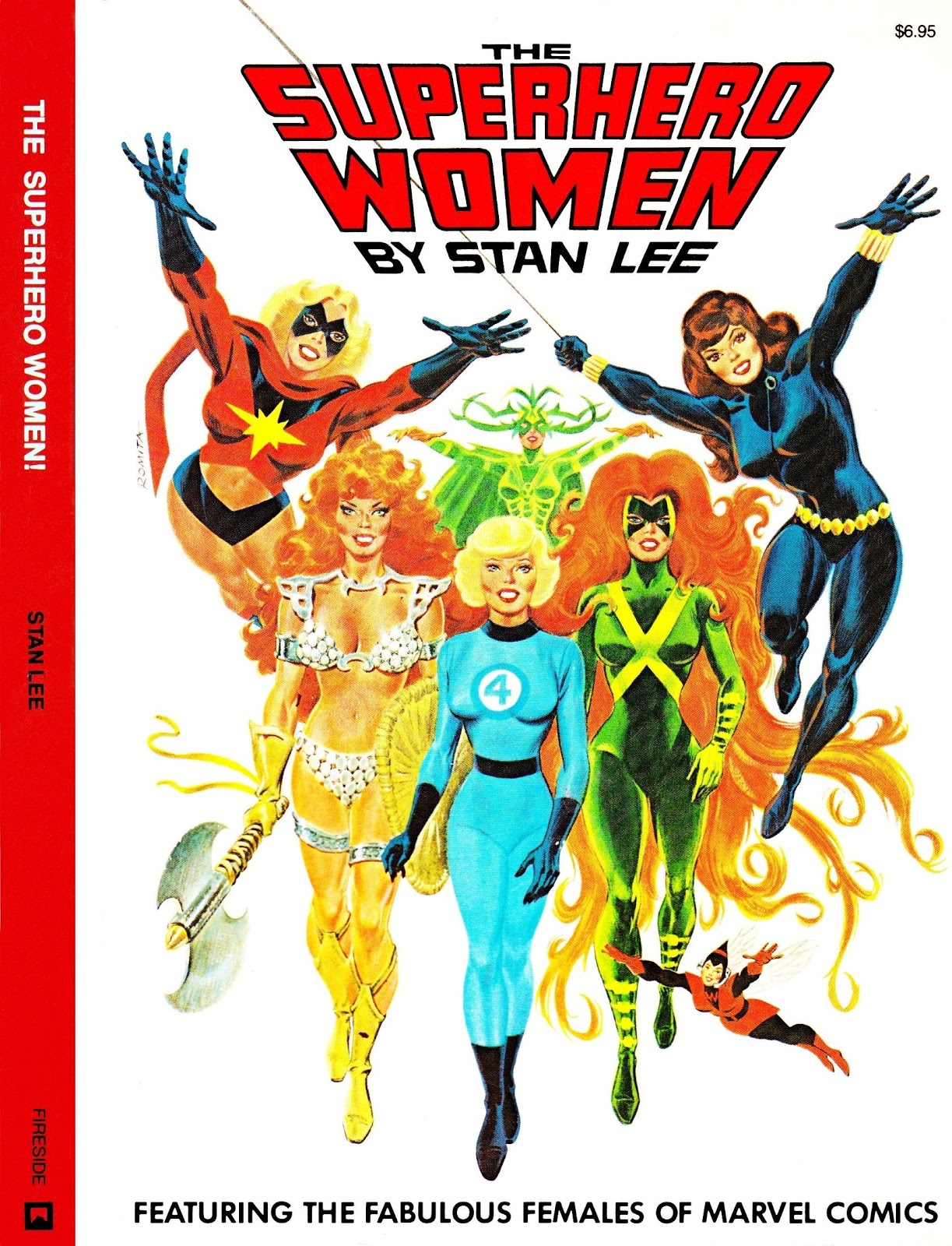
- How Uru, the mysterious metal from which Thor's power hammer was forged, was a concoction of writer Larry Lieber's imagination—and that Stan thought it was a real and actual auriferous for years!
- How the Abhorrence was born out of a desire to hand the almost omnipotent Heavyweight an opposite number in both backstory and power
- How the X-Men almost weren't the X-Hands. Stan desirable to squall the team simply 'The Mutants,' but then-Marvel publisher Martin Benjamin David Goodman put the kibosh on that title, fearing that readers wouldn't have a go at it what a mutant was -equally if they'd know what an X-Man was!
Ah, Goodman. The man who had owned Marvel Comics sold the company and was foregone by 1972. Stan took advantage of Benjamin David Goodman's absence, painting his former boss Eastern Samoa someone World Health Organization didn't much maintenance for the readers, ne'er respecting their intelligence. It was Stan who horde Marvel to something more aspirational, a rung up. Stan, in his possess very Stan-like way, utterly cared. Information technology showed in his dedication page in Bring out the Bad Guys, the instant sequel which hit in 1976:
"To you, the sophisticated comic Word fan, this book is gratefully dedicated.
"In one brief decennium, your ebullience, your involvement, and your unwavering suffer have got helped make an entire generation increasingly sensitive that the omnipresent humorous is not single a leading contemporary graphics manikin, but truly an integral part of our cultural heritage.
"Hey—thanks a lot!"
Origins and its sequels even birthed a whole unprecedented way of reading comics.
"Origins was the trade paperback before the trade paperback food market even existed," says filmmaker Kevin John Smith. "And it wasn't fair-and-square some Wonder in-home compilation Word. It was published by Marvin Neil Simon & Schuster, a serious publisher, a ledger-book publishing house. Most importantly, that was an indicant that somebody outside the comic ledger market was treating this seriously."
Kate Smith was turned on to Origins in the same agency many other readers of the '70s and '80s were, qualification the book a trailblazer once more.
"If you were looking a comic book in the library in the '80s, good luck," he says. "You weren't finding one, except for this. That legitimized what Stan was doing, what comics were doing. This was a beautiful, perfect manner in to the Marvel Universe for someone World Health Organization didn't grow dormie in information technology, or a classic revisit, a nostalgia jolt, if you were recitation Marvel back when this happened."
It was both newfangled and nostalgia for longtime Wonder artist, writer, editor, previous CCO, and current enforcement vice chairman and creative director of Marvel, Joe Quesada.
"That book was so instrumental to me in understanding and building a make out of Marvel as a tike," Quesada says. "I started reading Wonder Comics in 1970, so I had already missed a decade of publishing. I had an appetite to learn more, so I went to a book store - like a book store book store! - to get ahead a written matter. I had no idea or so the origins of these stories and Stan's view process behind them. It was an eye-opening experience."
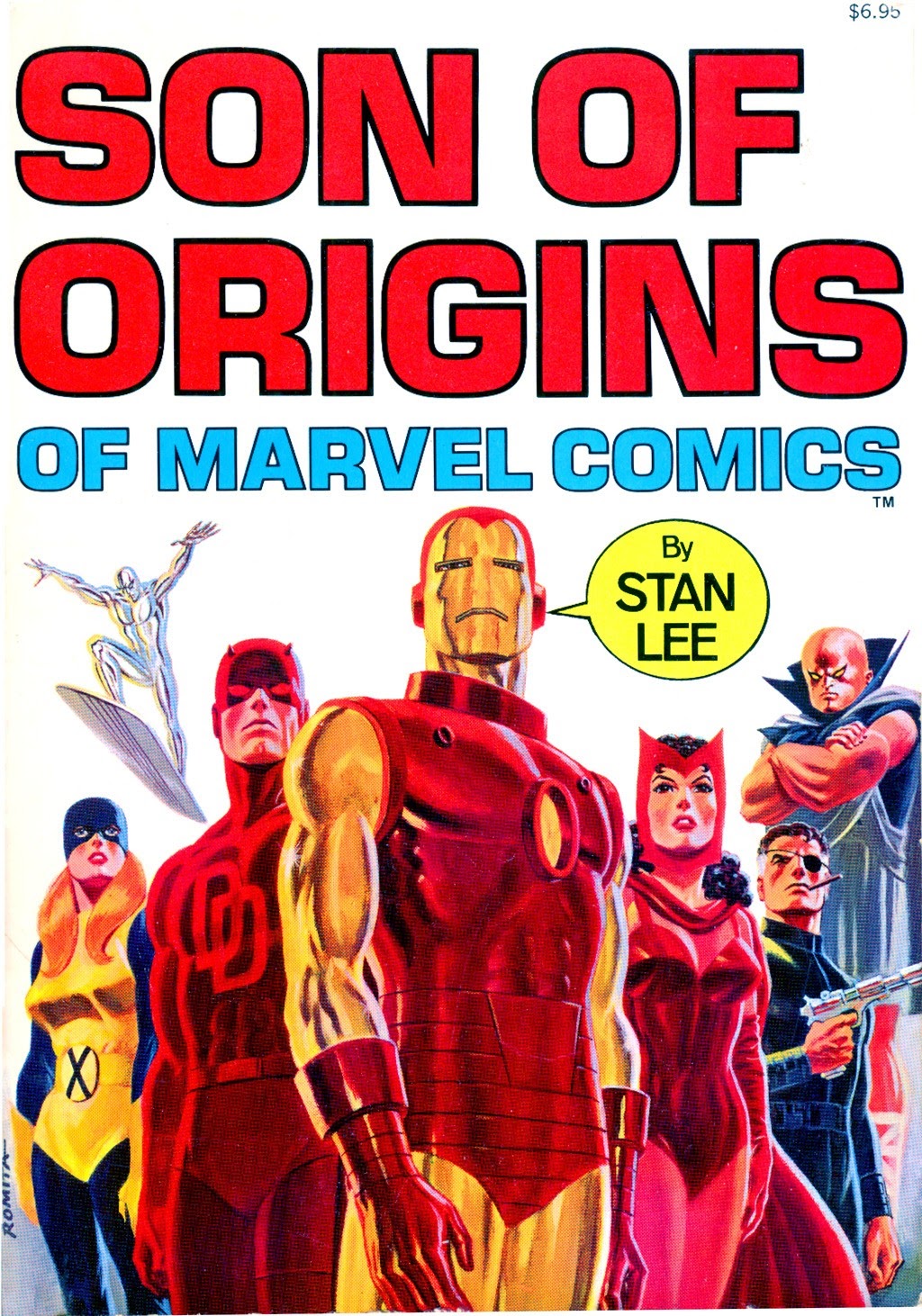
And even out today, the material in Origins of Marvel Comics and its sequels are motionless foundational. When someone is exposed to Marvel anew, say, through a Doctor Fantastical movie, you're sighted the same origin that Stan revealed in Origins of Marvel Comics, and besides the thoughts from Stan and others that went into IT. Thus the '60s are linked to the '70s to nowadays.
Hey, Stan Lee knew information technology himself. Sensible read the epilogue to Origins of Marvel Comics:
"Let's not consider this a conclusion. Let's rather scream it a beginning, the offse of an ever-continuing travel into the region of Wonder mythology -a realm where all, heedless of color, sex, or creed, are indeed kindred souls, united by a common passion of chance, fantasy, and just plain fun. Perhaps, just perhaps, that's what Marvel's really all most.
"Excelsior!"
Make over for sure you've read all the unexceeded Wonder stories of all time.
Source: https://www.gamesradar.com/marvel-comics-has-an-autobiography-and-stan-lee-wrote-it-back-in-the-70s/
Posted by: horowitzbitterephe.blogspot.com


0 Response to "Marvel Comics has an autobiography, and Stan Lee wrote it back in the '70s - horowitzbitterephe"
Post a Comment